The idea behind the Campus Quest is that on Monday intro groups start by exploring the campus together, then build a structure, which they’ll put to the test the next morning – on Tuesday. What exactly gets built – and in some cases whether anything gets built at all – depends on the study association.
Built Environment association CHEOPS, for example, has its first-year students – just like in previous years – build a cardboard ‘shield’ to face off against the powerful fire hose of the TU/e fire brigade. Many students take off their shoes in advance, and the association hands out swimming goggles. And those goggles come in handy: despite their homemade shields, no one stays dry.
And over at Simon Stevin, the study association for Mechanical Engineering, there are wet feet as well. Though not for the first-years, but for their intro “moms and dads.” “Yesterday, each group had to build a ballista – it's kind of like a crossbow,” says Lucas van Hest, board member at Simon Stevin.
If they hit the target, their intro parent drops into a pool of water. “Only six out of 36 groups actually managed to hit the target. Last year, it was more like twenty,” he says. Still, every intro parent ends up with wet feet. “Even if they miss, we make sure they fall in anyway.”
Some study associations opt for slightly less intense activities. First-year students of Chemical Engineering & Chemistry, for instance, build an imaginary molecule. The group led by intro parent Helia Ashrafian based theirs on her late pet turtle. “We tried to design it so that when you twist it, it can resemble any kind of pet. Right now, it kind of looks like a dog,” she says.
Things are also more relaxed over at Applied Physics, where each group builds a rocket – some more impressive than others. Mentor Sebas Cantero and his group are working on their rocket, ‘Piece of Shit V2.’ “Last year I was a mentor too, and we made the first Piece of Shit, so this is version two,” he laughs. The ‘rocket’ is decorated with tape, coins, and Nutella. Whether it will actually fly, Cantero isn’t sure yet:
“We’ll have to find out.”
Building something fits some study associations better than others. At GEWIS – the study association for Mathematics & Computer Science – decided to skip the construction altogether. Instead, they organize team games, ranging from sponge fights to blindfolded “horseback riding” on the back of a teammate.
“We’re not really a ‘building’ kind of study, and we think it’s more important to highlight our societies. That’s why we asked each one to organize a game,” explains Job van de Ven. The GEWIS bar committee – which Van de Ven is also part of – is there too, complete with their mobile tap, ready to serve glasses of water instead of beer. “Our water bar is open to other associations too, of course,” he adds.
This article was translated using AI-assisted tools and reviewed by an editor.
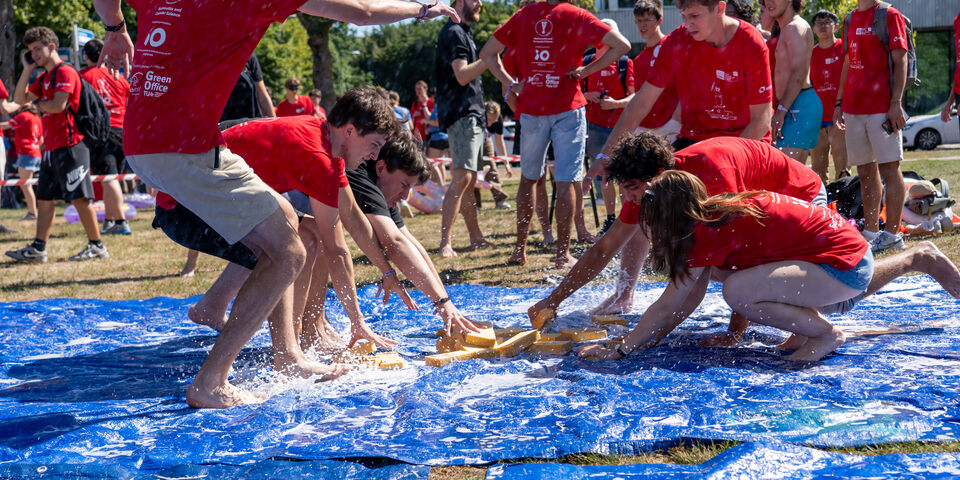

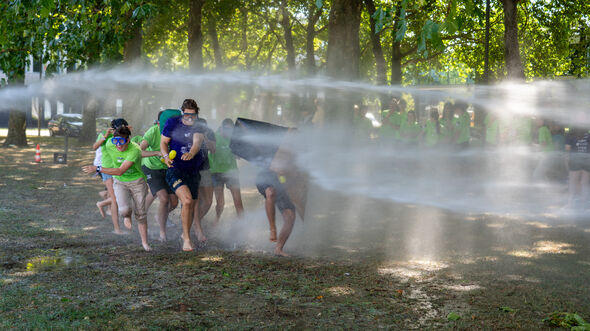
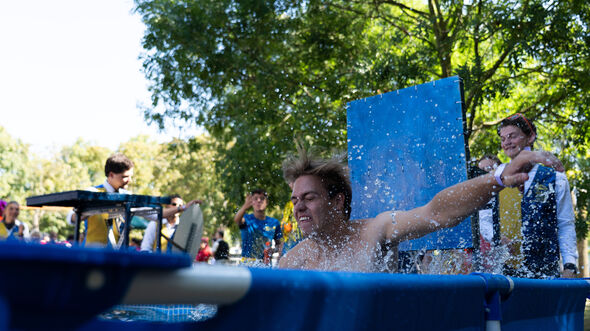
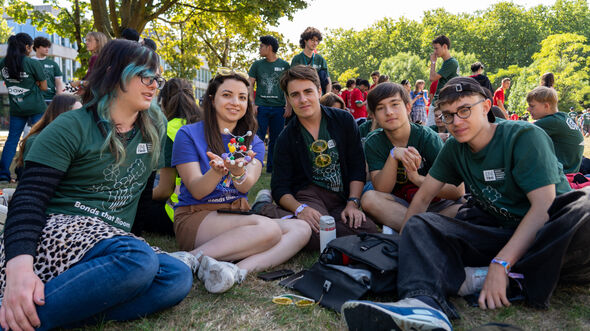
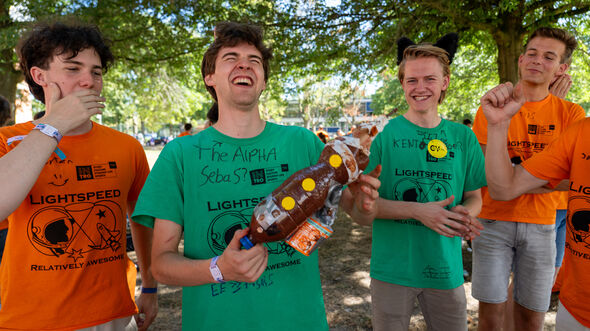
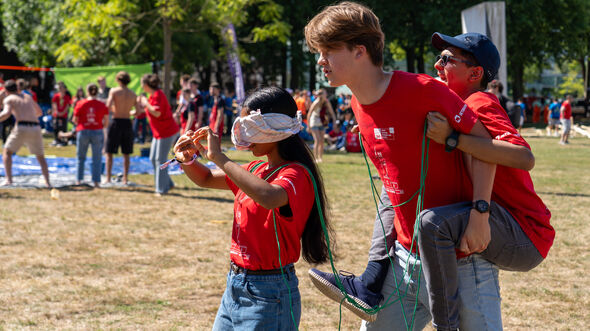
Discussion